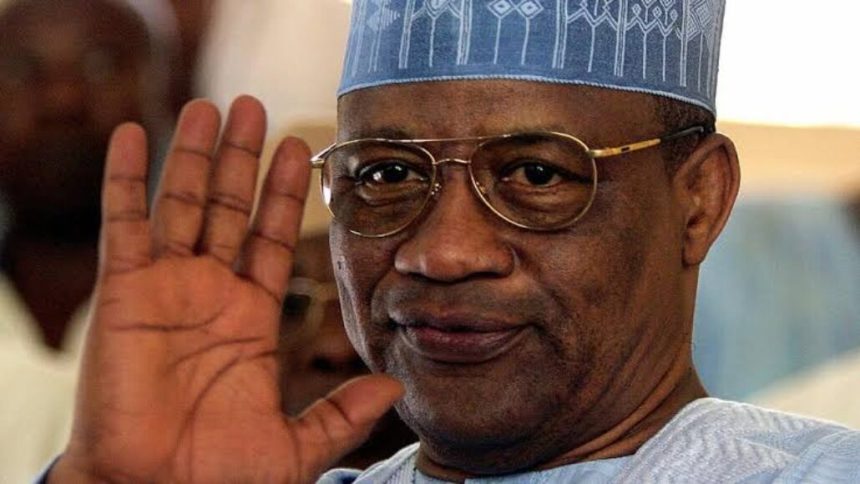After decades of controversy and speculation, former military president General Ibrahim Badamasi Babangida (rtd) has finally admitted what many Nigerians have long believed Chief Moshood Kashimawo Olawale Abiola was the rightful winner of the June 12, 1993, presidential election. This long-awaited confession is detailed in his newly released autobiography, A Journey In Service, officially unveiled today in Abuja.
High-Profile Book Launch in Abuja
The event attracted prominent figures from across Nigeria and beyond, underscoring the significance of Babangida’s revelations. Attendees included:
- President Bola Tinubu
- Former President Goodluck Jonathan
- Ex-Ghanaian President Nana Akufo-Addo
- Former Heads of State Yakubu Gowon and Abdulsalami Abubakar
The book was reviewed by former Vice President Professor Yemi Osinbajo, who shared key excerpts that left the audience in deep contemplation.

Babangida Confirms Abiola’s Victory
A striking portion of the book confirms that a thorough examination of the election results made it undeniable that Abiola had emerged victorious. Osinbajo quoted Babangida as writing:
“Upon deeper reflection and a closer examination of all available facts, particularly the detailed election results, which are published as an appendix to this book, there was no doubt that MKO Abiola won the June 12th elections.”
Babangida also acknowledged that Abiola met both constitutional requirements for winning:
- Majority Votes: Abiola secured 8,128,720 votes, significantly surpassing Bashir Tofa’s 5,848,247 votes.
- Geographical Spread: Abiola achieved the required one-third of votes across 28 states, including the Federal Capital Territory, Abuja.
Additionally, Babangida admitted that the Buhari administration’s posthumous recognition of Abiola as a former head of state was a long-overdue act of justice.
Regret Over Annulment of June 12, 1993, Election
Perhaps the most emotional part of Babangida’s confession was his reflection on annulling the election. He described it as the most difficult and painful moment of his life:
“Looking back now, the June 12th saga was undeniably the most challenging moment of my life, and in certain respects, one of the most painful. And if I had to do it all over again, I would do it differently.”
For decades, the annulment of the June 12, 1993, election has been one of the most contentious moments in Nigeria’s political history. It fueled distrust in the democratic process, triggered widespread protests, and led to political instability.
The Impact of Babangida’s Admission
Babangida’s admission, though long overdue, may offer some form of closure to those who fought and suffered for the recognition of Abiola’s mandate. However, it raises key questions:
- Why did it take so long for this confession?
- What pressures influenced the annulment decision?
- Could this revelation mark a turning point in Nigeria’s political history?
Only time will tell. However, one thing is certain—history has finally been acknowledged, and the truth, no matter how delayed, has come to light.



